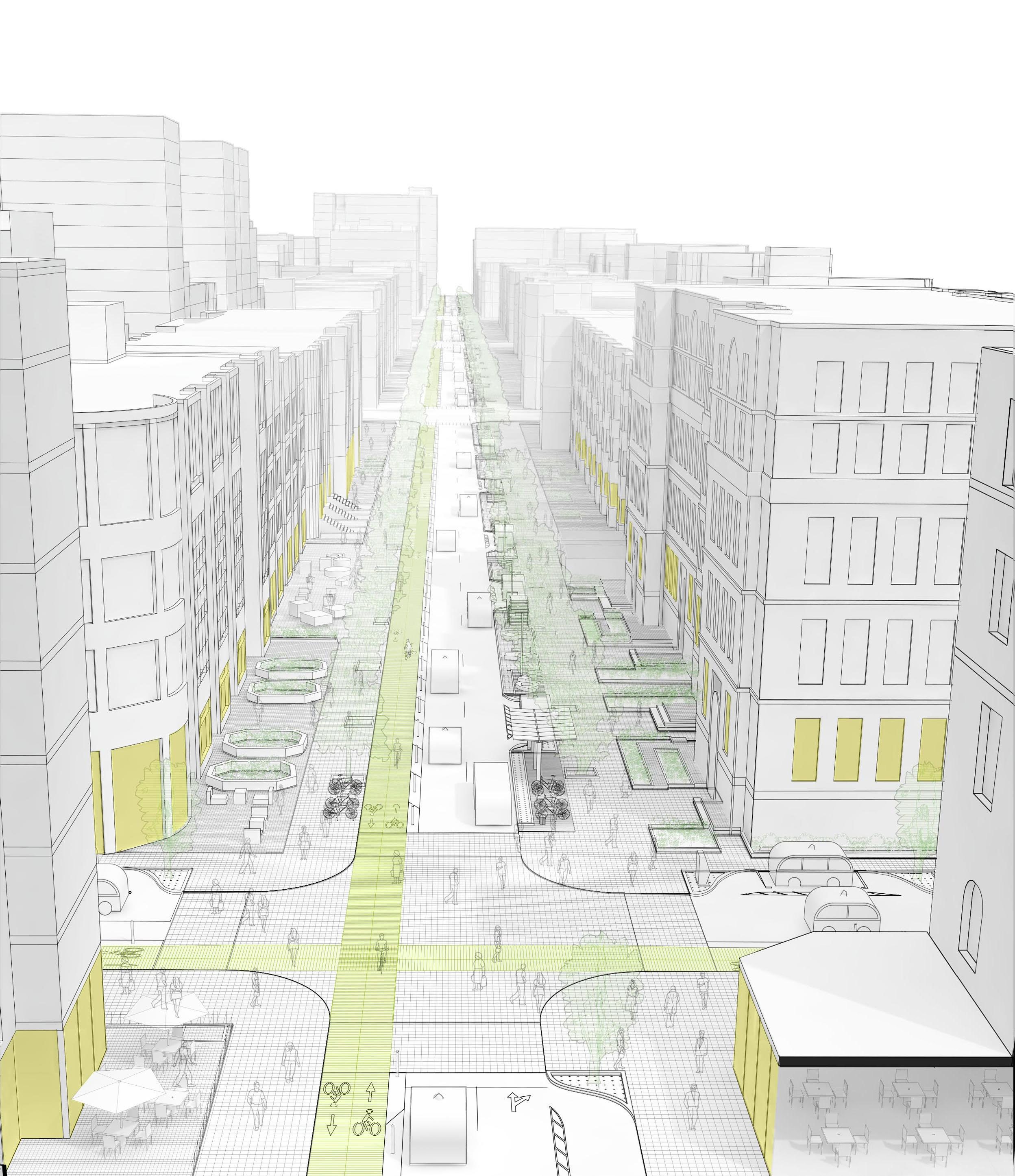Future of Streets

Visualization depicting a potential post-autonomous vehicles urban landscape. Image by Chenglong Zhao and Foteini Bouliari, both MAUD '18.
The Future of Streets (FoS) research project at the Harvard Graduate School of Design’s City Form Lab investigates how cities might adapt streets to newly emerging shared, electric, and autonomous transportation technology in ways that maximize multi-modal, socially inclusive, and environmentally sustainable outcomes.
The project explores three key questions:
- How could new street-based infrastructure projects for shared, electric, and autonomous vehicles affect accessibility on other modes, particularly walking, biking, and public transit, as well as alternative uses of streets for social, commercial, and cultural activities and interaction?
- What impact could street modifications for new mobility technologies have on land values, residential displacement, and by extension, broader spatial accessibility to urban amenities, services, and resources among different socio-economic groups?
- What policy options, planning templates, and political strategies can help cities adopt new street-based mobility solutions so as to maximize multi-modal, socially inclusive, and environmentally sustainable outcomes?
Undertaken in collaboration between the Harvard GSD, the City of Los Angeles, the City of Boston, and industry partners representing technology, transportation, and infrastructure sectors, it comprises empirical research, spatial analysis, predictive modeling, and design studios.
For more information about the Future of Streets research project, please visit futureofstreets.com.